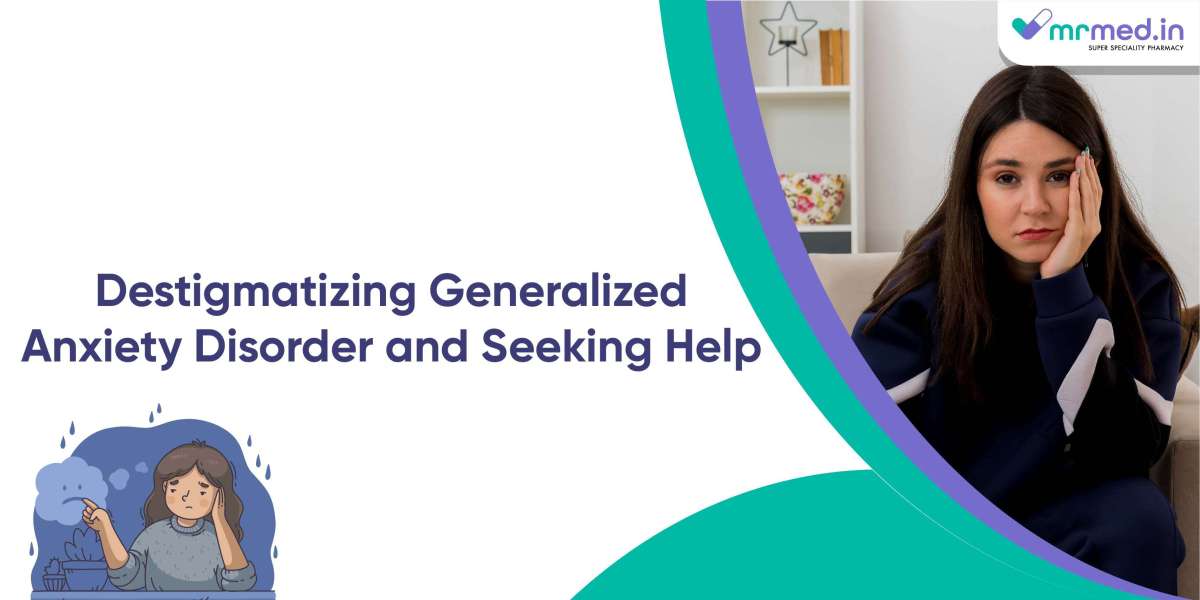Anxiety is a normal way of expressing certain emotions during stressful situations. Like other emotions (sadness, happiness, and fear), it is also normal for human beings. But when it comes to disorder, we need to pay some attention to overcome it. Individuals with anxiety disorder are often facing mental illness, which is caused by constant and overwhelming anxiety and fear. Today, we are going to discuss generalized anxiety disorder and how to overcome it.
Know about Generalized Anxiety Disorder (GAD)
Generalized anxiety disorder is caused by fear, worry, and constant overwhelming. It can lead to excessive, frequent, and worrying thoughts about everything in daily activities. This can affect both children and adults. Patients with GAD may also be affected with at least any of the following psychiatric disorders: major depression, specific phobia, social anxiety disorder, and panic disorder.
Symptoms of GAD
People with GAD have persistent worrying and stress, which can cause various symptoms that are given below:
- Restlessness: Individuals may experience restlessness due to continuous worrying.
- Feeling irritation: The patient may have an unwanted irritation or feeling of irritability for small things.
- Fatigued: Individuals may get tired easily due to the restless conditions
- Shortness of breath: Patients may have shortness of breath or difficulty breathing.
- Heart palpitations: Individuals may have a fluttering, pounding, or irregular heartbeat due to anxiety.
- Difficulty concentrating: Individuals may experience difficulty in concentrating things.
- Muscle tension: Individuals may have muscle stiffness, which can lead to muscle pain.
Risk factors
The exact cause of GAD is still not known. However, it is estimated that several genetic, biological, and environmental factors can cause it. Some of the environmental factors for GAD are given below:
- Traumatic event: Individuals who have past or present exposure to traumatic events are at an increased risk of getting GAD.
- Stressful environment: People who are in a stressful environment (violence or physical abuse) are at increased risk of getting GAD.
- Chronic illness: Patients who have a chronic illness are at an increase in GAD.
- Child abuse: People who experience abuse in their childhood or children who have been exposed to physical and mental abuse may have an increased risk of getting GAD.
How to seek help during GAD
Individuals with GAD can be effectively treated and managed by the following strategies, which are given below:
1. Psychotherapy
It is also known as talk therapy, which is a type of treatment to help an individual identify and overcome negative emotions and thoughts. Psychologists, psychiatrists, and healthcare professionals usually do it.
2. Medication
- Antidepressants: Your healthcare provider may prescribe antidepressant medications such as selective serotonin reuptake inhibitors and serotonin-norepinephrine reuptake inhibitors to treat the symptoms of GAD.
- Anti-anxiety medications: Anti-anxiety medications are medications that help to manage GAD-related anxiety in individuals.
3. GABA analogs
GABA analogs are a type of neurotransmitter inhibitor that helps to treat neurological disorders like GAD. For example, Lyrica 75mg capsule contains an active ingredient called Pregabalin. This medicine is used to treat epilepsy, generalized anxiety disorder (GAD), and neuropathic pain (pain from damaged nerves) in adults.
4. Holistic approach
- Healthy lifestyle: It is recommended to take care of your health by making healthy lifestyle habits, like getting enough sleep, which can help reduce stress.
- Stress management: Practicing stress management techniques like exercise, meditation, and yoga can help reduce patients' stress and anxiety.
- Avoiding alcohol consumption: Drinking alcohol can make your GAD symptoms even worse, and it can also interfere with GAD medications.
- Community Initiatives: Initiating a support community that focuses on mental health awareness can help reach the affected person and help them to overcome it in an effective way.
Conclusion
GAD is a mental disorder which needs special attention and care. People with GAD should speak with their healthcare provider and psychiatrist in order to overcome the anxiety disorder as soon as possible. Also, it is crucial to show our emotional and physical support to the GAD patient to remove the stigma from our community. Let's make every GAD patient comfortable to seek emotional support.









